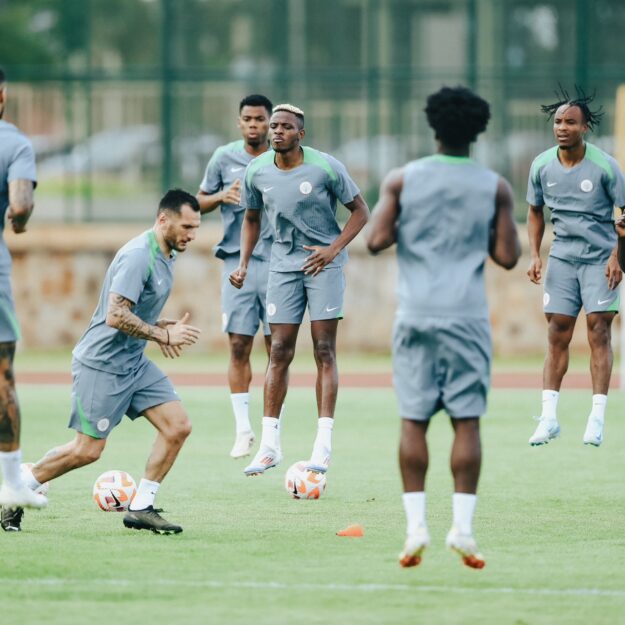By SUNDAY ODIBASHI
The girl child has continued to be victim of modern domestic slave in the city in the 21st century despite advocacy and legal instruments to promote and protect the child right in Nigeria. The girl child is taken away from her parents in the hinterlands at the prime age of human development and empowerment in education or skill acquisition that ought to prepare her for future life by the urban dweller for forced or slave labour in the city. The woes of the girl child being exploited in the urban settlement are compounded when her reward or compensation in terms of wages or allowances from her hosts in the metropolis are diverted to intermediaries. Her time is wasted, she is left at last to the hazards of social maladies.
At adult life, the girl child has been exploited and left with nothing for self-sustenance or productive life. Then, the exploited girl child faces the trauma of maladjustment and its associated social malaise encapsulated in negative socio-economic-status (SES). This is a visible phenomenon in various cities in Nigeria where abuse or domestic violence against the girl child has been notorious.
A global report by UNICEF indicated that over 13.2 million children are out of school in Nigeria. From an elementary survey, about 65 per cent of the out of school children are girls while about 60 per cent are being taken away from their parents in the rural areas by urban dwellers for exploitative slave labour in the cities.
In the cities of Lagos, Abuja, etc., it is a common feature to see girls of school age hawking on the streets during school and working hours of the week; they hawk into the late hours of the days even after workers have closed from their offices. They engage in hawking of variety of consumer products like fried or cooked groundnut, pawpaw, banana, orange, pineapple, plantain, plantain chips, on the streets and at high traffic locations on the highways in the metropole. Groundnut sellers have become the most rampant nowadays, making sales in all seasons of the year from January to December. Many other girls are recruited as housemaids to their urban mistresses or masters.
A sample survey conducted in Lagos shows that majority of the children are ‘supplied’ from some states in the south east and north central, essentially, Ebonyi, Benue; some others from Cross River, Akwa Ibom, etc. A few of the females are also recruited from the interior of Ogun and Osun states for house help jobs or as sales girls in restaurants, retail shops.
While some of the urban hosts approach relations in the rural community to take their daughters to the city, some middlemen form child trafficking syndicate supplying the girl child to urban dwellers at an agreed cost. They constitute human merchants, facilitating supply chain of the girl child from the rural community to urban dwellers on contractual agreement.
Investigations show that girl child merchants make supply to their clients on contract terms of between N50,000 and N100,000 per one girl child, depending the client making demand. Then, the recruited girl child for housemaid earns monthly wage of N10,000 or N13,000, N15,000; a few earn N20,000.
Investigation further shows that the demand for the girl child in the city is higher than demand for boys. Thus, there is higher trafficking of the girl child by the human merchants from the precincts to the cities.
The mode of wage payment differs according the contract terms between the client and the human merchant. The victim is never part of the agreement.
Three modes of wage payment were detected. The client pays the monthly wage to the agent or the merchant, the monthly wage, in some instances, is paid directly to the maid; the third is that monthly wage may be paid to the mother of the maid in the rural community through an agreed channel. These are mostly applicable to those supplied for housemaid.
Appallingly, the girl child, in most instances, is working while others are earning the wages of her labour, leaving her with nothing.
Investigation further shows that the preferred supply ages for housemaids range from 10 to 23 years, in few instances, eight years.
The tenure of the contract is usually defined by the human merchant but varies according to the contract agreement terms. The rural/urban human merchant, in some contracts, restricts the tenure of the maid to one year; in other contract agreements, the tenure may be indefinite. Where the tenure is one year, the merchant comes at the end of the year to take the girl child away from the client without the consent of the girl who may prefer to remain with her principal. The merchant will then supply the girl child to another client; may make fresh supply to the client from whom the girl has been taken away.
The pathetic dehumanization story comes from the girl child on the streets of the city hawking groundnut during school or working hours. While the children of the mistress are putting on their uniform to go to school, the slave girl child is handed a tray of groundnut or any other edible fruit, ordered to leave the resident for the streets to hawk during school hours. All the victims recruited for hawking during school hours trek over 20 or 35 kilometres from the resident of their principal in the urban periphery to locations of trade in the metropolis. She moves from street to street hawking, responding to invitations to security posts, mechanic workshops, shops, just to have patronage and make sales for the day. Some are abused at most sales points by those who patronize them; some are lured or persuaded with money for illicit sex, or forcefully raped.
Most of the hawkers disclosed that they make sales of N4,800, some as high as N11,500 daily when lucky to exhaust the stock, depending on the quantity of stock. They leave home between 9.30 and 10.00am and return home at about 11.00 pm, a few revealed that they return home between 11.45pm and 12 midnight. The days of low sales, going back home is at the mercy of God; hell is waiting at home. The cruel principal is waiting to inflict severe punishment.
While the girl child is on the streets hawking groundnut, the children of the shrewd principal are in school acquiring education. The hawker girl child is not given transport allowance to move from the home to the city; she must not spend proceeds from sales to feed; she eats at home before going out and eats again on return. This complicates the dilemma of the hawking girl child who has to go beyond selling her product to begging her customer for money to feed; then, she becomes a victim of rape or induced sex slave to some of her helpers. Some intentionally develop affection, become unusually friendly with some customers who patronize them daily in their desperate need for assistance to survive. Then, they agree on mutual relationship and sex. Double tragedy struck! Then, the girl child in her slave labour becomes pregnant unintentionally. Findings show that such victims fall into unfortunate hands – motor mechanics, some of whom are apprentice; security gate men, okada riders, shop keepers, bus drivers, etc. These people are not ready for marriage at the time of the infatuation but with gifts of N200, N500 some N1,000 to the hawker girl child, they can have sex to their satisfaction at the pleasure of the victims who feel to have got means of alternative survival before going back home.
A victim, aged 12 years, narrated to this Reporter how afraid she was going back home at the end of the day. She sat helplessly beside a shop along Allen Avenue in Ikeja, Lagos at about 8.30pm. She had closed sales that day but did not finish the groundnut packaged for her. However, she had made sales of N3,800, which she said was good sales for the day, but she was not willing to go home. Her principal lives at Oke-Ira in Ojodu LCDA; thus, the girl treks from there to Opebi, then, back to Allen Avenue, before the journey back home. Offering her assistance of N500 for transport back home because it was late and offices have closed, she reluctantly accepted it but said that her major problem was how she can go back to her town in Benue State. She was in hell in the city, life has been misery to her; sexually harassed at home; hardly gets convenient place to sleep at night – most days sleeps on the corridor, then, starved of food. She also realized that her future was being destroyed. She blamed her parents for allowing her exploiters take her away from the rural community to the city. She wanted to go back to her parents. She was bitter.
The phenomenal girl child slave labour gets more disheartening when most male merchants, recruit the girls from the rural communities, bring them into the city, accommodate about three or five in one or two rooms resident, provide consumable products to hawk on the streets. They, thereafter, turn the victims to sex machine at night. The victims curious to remain in the city, seldom resist or protest. Most female human merchants also recruit some of these girls for prosecution in the city; give them out to me, then, make money from their services. Again, some get unwanted pregnancy – commit abortion or give birth to unwanted babies.
Some victims are even recruited for baby factories. They are assembled in a resident, taken care off, then, men are brought in to have sex and impregnate them. On delivery, the babies are sold while the victim mothers are paid certain amount for producing babies in the factories.
Meanwhile, some of the hawkers revealed to this Reporter that they earn monthly wage of N10,000 to N15,000, depending on performance, some others do not earn wage. Details in subsequent reports.
Investigation, however, shows that rural poverty, fake promises, psychological illusion of urban life and other factors give impetus to rural/urban girl child merchandise. Parents are compelled by poverty to give out their children for domestic services in the city at certain monthly wage; while the inclination for city life make girls accept any offer to leave the rural community and migrate to the city without considering the consequences. Some are taken away at the age of seven years when they should be in the primary school. The victims spend their years of primary and secondary education, the probable lucky ones, university education; or in the contrary , learning vocational works, that would empower them for economic activities or production in adulthood, in slave labour that provide temporary reward for some, or no reward for others whose wages go to either their parents or the human merchants.
Details of these and other issues relating to legislation and enforcement of the child rights acts, interventionist roles of NAPTIP in human trafficking, will be unveiled in subsequent reports.
The investigation continues, efforts are being made to have interactions with beneficiaries of the girl child slave labour – the merchants, parents, clients. There have been impediments in this aspect of the investigation, but the methodology is being modified to scale through before the conclusion.
PV: 0
You may be interested

‘We Keep Going’ — Osimhen Shifts Focus To Zimbabwe Showdown
Webby - March 22, 2025Victor Osimhen says the Super Eagles have shifted attention to their next 2026 FIFA World Cup qualifying tie against Zimbabwe.…

2026 WCQ: Rwanda Gifted Goals To Super Eagles — Amrouche
Webby - March 22, 2025Rwanda head coach Adel Amrouche claimed his players gifted the Super Eagles two cheap goals which cost them during the…

Rwanda Vs Nigeria: Galatasaray Fan Storms Kigali To Support Osimhen
Webby - March 21, 2025A Galatasaray fan arrived Kigali on Thursday to offer support for Victor Osimhen, reports Completesports.com. Nigeria will be up against…

























![American Pastor, David Wilson Seen Eating The Box Of Woman Who Isn’t His Wife [Video]](https://onlinenigeria.com/wp-content/uploads/2019/10/american-pastor-david-wilson-seen-eating-the-box-of-woman-who-isnt-his-wife-video-150x150.jpg)









